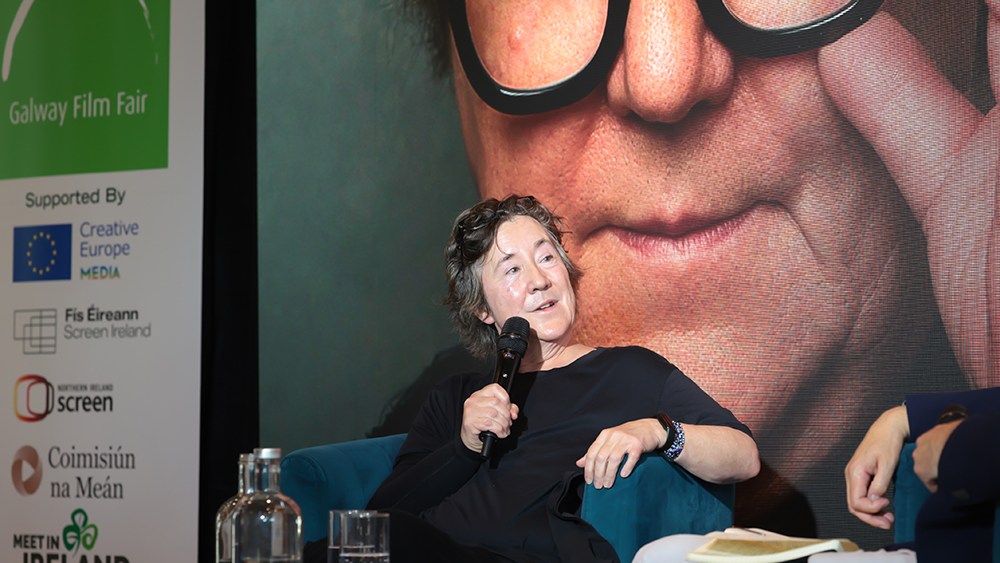One of the icons of independent cinema, Christine Vachon is celebrating 30 years of Killer Films, the production banner she set up in 1995 with Pamela Koffler. Across three decades and more than 100 features — including “Kids,” “Far From Heaven,” “Boys Don’t Cry,” “Hedwig and the Angry Inch” and “Carol” — Vachon and Koffler have helped launch the careers of numerous directors and produced box office hits and multi-award winners, several with their long-standing collaborator Todd Haynes.
Just this year, Killer was behind “Materialists,” A24’s hugely successful romantic drama and the sophomore feature from Celine Song, having also produced her multi-Oscar nominated and critically adored debut “Past Lives.”
But for Vachon, her entire career can be traced back to a film that she didn’t produce and, as she admits, isn’t even possible to watch, at least not legally.
“I think in some ways, it really begins with Todd [Haynes]’s first film, which is a banned film called ‘Superstar: The Karen Carpenter Story,” she explained at the Galway Film Fleadh in Ireland, speaking as the first guest of the Forum, hosted by the festival’s industry-focused Film Fair.
Made in 1987 and just 40 minutes long, “Superstar: The Karen Carpenter Story,” tells the story of the legendary singer’s final years as she struggled with anorexia. Somewhat unorthodoxly, it’s told via stop-motion animation using Barbie dolls. However, the film was pulled in 1990 after Haynes lost a copyright lawsuit filed by Carpenter’s brother.
“By the end of the movie, you can’t believe was a great performance the Barbie dolls gave,” she said. “I guess seeing that film was a bit of an epiphany for me, because it made me realize that that kind of filmmaking, which was incredibly provocative and subversive and meaningful, but also incredibly entertaining, were the kind of movies I wanted to make.”
But for anyone wanting to see “Superstar: The Karen Carpenter Story,” for themselves, Vachon admitted it wasn’t easy. “It does pop up on YouTube constantly and then gets taken down, a bit like whack-a-mole,’” she said. “So I would recommend that you do your best to try and watch it illegally.”
Vachon’s debut feature, before the launch of Killer Films, was actually Haynes’ feature debut, 1991’s “Poison,” which would become a landmark title in the so-called New Queer Cinema movement and the first of many LGBTQ+ films for both producer and director.
While Vachon told the audience in Galway that she had always simply “wanted to make movies that excite me and provoke me,” in producing “Poison” she said she made a discovery that was “extraordinarily empowering.”
“I discovered that if you made a movie that had queer content — and the queer audience at that time was so underserved — people would go to it. People flocked to it, because they were so desperate to see themselves represented on screen,” she said. “And I discovered that if you made a film for an underserved audience and just marketed it directly to them, and you made it for the right price, you could make your money back and you could make another one.”
It was this, she said, that “really drove” her first few movies. “Poison,” made for just $250,000 would go on to earn triple that at the box office. Her third film, “Go Fish,” a comedy drama centered around a lesbian college student and made for a similar budget, would earn $2.5 million.
Fast forward 30 years and Killer’s latest film “Materialists” — starring Dakota Fanning, Pedro Pascal and Chris Evans and released by A24 — has already amassed $46 million in just over three weeks. But even despite her experience, Vachon admitted that the secret behind the film’s success was still an alchemy that was difficult to exactly pin down.
“Was it because A24 advertised it more as a rom-com, even though it’s a little bit more rom than com? Was it because people were looking for an adult character-driven film, of which there haven’t been many? Or was it because the three leads are all Marvel movie alumni? Or is a combination?”
As Vachon noted: “Those discussions are intriguing.”


